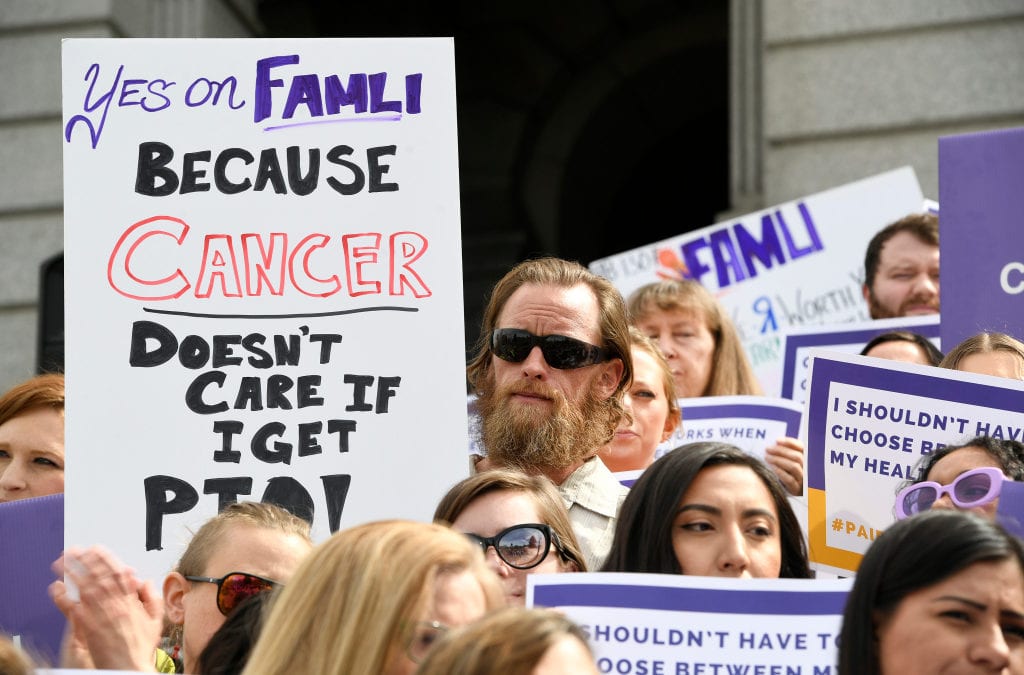Colorado voters will decide Tuesday whether to adopt one of the most progressive family and medical leave programs in the country — one that would be run by the state and provide up to 12 weeks of paid time off in most cases.
Proposition 118 seeks to do what Democrats in the state legislature have failed to in recent years.
Funded through a 0.9% tax on an employee’s annual pay split evenly between the employee and employer, Prop 118 would create a social insurance program similar to those that already exist in states including New Jersey and California.
Workers caring for newborns, sick relatives or dealing with personal health emergencies could take up to 12 weeks off and be paid through the program. The maximum paid time off would be extended to 16 weeks for those dealing with childbirth or pregnancy complications.
The lowest-income workers would receive the most support under the graduated scale system, receiving up to 90% of their normal weekly income. People with higher-paying jobs could get as little as 37% of their weekly check.
Proposition 118 comes with an estimated $1.2 billion annual price tag. The costs are shared by workers at businesses that are subject to the system. A Coloradan making $52,000 a year would pay $234 in annual premiums, a total matched by their employer, the state’s Legislative Council says.
Proponents of the measure — including more than 200 business owners who have lent their voices to the pro 118 advocacy group Colorado Families First — say the cost is well worth it.
“As a business owner, I can tell you this policy is exactly what I need for my company: a way to give my workers a benefit they deserve at a price I can afford,” Maria Keenan, owner of Grand Junction business Keenan Construction, said in recent a news release.
Many of the state’s most prominent business advocacy groups are opposed to the measure.
The Denver Metro Chamber of Commerce recommended a no vote in its 2020 ballot guide, citing the challenging economic times brought on by the COVID-19 pandemic.
“This initiative is costly for both employees and employers at a time when many are struggling to keep teams employed, are working to rebuild or even just trying to stay afloat in this economy,” the chamber’s guide reads.
There is a question as to how much the pandemic and the recession will impact the program if it passes. The Colorado Department of Labor and Employment will not start collecting premiums until 2023. Claims payments wouldn’t start until a year later, with first-year benefits capped at $1,100 per week regardless of a worker’s normal income.
Proposition 118 would exempt businesses with nine employees or fewer, though workers could still choose to pay premiums and be covered. Local governments could opt out, as could businesses that already provide a similar paid family and medical leave benefit.
This content was originally published here.





